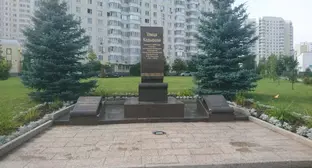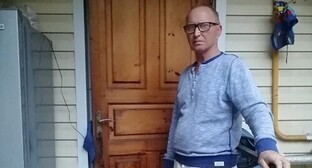09 March 2015, 09:00
Week in the Caucasus: review of main events of March 2-8
Funeral of Boris Nemtsov and detention of natives of Northern Caucasus suspected of his murder; acquittal of former Imam of Kislovodsk in case of Bostanov's murder; suspension of hunger strike of Shushiya villagers of Dagestan, who demand land allocation; start of trial of Dzhokhar Tsarnaev in Boston case; launch countdown of 100 days till the start of the European Olympic Games in Baku; start of fan-type hunger strike of parents of many children in Volgograd, – see the review of these and other events in the Caucasus during the week of March 2-8, 2015, prepared by the "Caucasian Knot".
Boris Nemtsov buried in Moscow; power agents announce detention of suspects
Boris Nemtsov was buried in Moscow on March 3; he was killed late in the evening on February 27 near the walls of the Kremlin. On March 7, Alexander Bortnikov, the head of the Russian Federal Security Bureau (FSB), said that the natives of Northern Caucasus Anzor Gubashev and Zaur Dadaev had been detained under the Nemtsov's murder case. Gubashev and Dadaev were detained by power agents in the territory of Ingushetia. It is known about them that Zaur Dadaev is a serviceman of the battalion "Sever" (North) of the Internal Troops of the Ministry of Internal Affairs (MIA) stationed in Chechnya; while Anzor Gubashev worked in a hypermarket in a Moscow suburb. Later, it became known about the detention of two other suspects – Shagid Gubashev, a brother of Anzor Gubashev, and Rustam Yusupov, Zaur Dadaev's colleague in the battalion "Sever". Rustam Yusupov was in the car with Dadaev, when the latter was detained.
On March 8, the Basmanny Court of Moscow ruled to arrest Zaur Dadaev and Anzor Gubashev. Their relatives declared their innocence in relation to the murder of Nemtsov. The detainees themselves refused to plead guilty in court and objected to their custody; however, the judge said that the involvement of Dadaev in the killing of Nemtsov was "confirmed by his confessions." Besides, on March 8, the Basmanny Court ruled to arrest three other suspects of involvement in Nemtsov's murder – Bakhaev, Eskerkhanov and Shagid Gubashev. All three refused to plead guilty. Anzor Gubashev and Zaur Dadaev have already seen their charges. Investigators believe that they were direct killers, while Bakhaev, Eskerkhanov and Shagid Gubashev are in the status of suspects.
Acquittal of former Imam of Kislovodsk Nazbi Adjiev
On March 6, the Supreme Court (SC) of the Karachay-Cherkessian Republic (KChR) ruled in the case of the former Imam of Kislovodsk Nazbi Adjiev, who had been accused of incitement to murder on September 20, 2009, of Ismail-Haji Bostanov, Deputy Chairman of the Spiritual Administration of Muslims (SAM) of the KChR and Stavropol Territory. Adjiev was found innocent and released in the courtroom. Nazbi Adjiev denied his guilt; and in his last plea he treated the killing of Bostanov as a tragedy. The state prosecution party, which demanded 12 years of high security colony for Adjiev, announced its intention to appeal against the verdict.
Villagers of Shushiya in Dagestan suspend their hunger strike with a demand of land allocation
On March 4, the hunger-strikers of the Dagestani village of Shushiya in the Novolak District suspended their hunger strike, which was launched with a demand to return to them nine hectares of land, earlier granted into lease to the Agricultural-Production Cooperative (APC) "Almaz". They held their action from February 10; and initially, there were 15 hunger-strikers. From February 15 on, the hunger-strike was continued by 10 persons; and after March 2, six women hunger-strikers remained; and some of them reported the worsening of their health status. The hunger-strike was suspended until the decision of the Kumtorkalin Court on the lawsuit lodged by the village administration on cancellation of registration of the lease contract on the disputed land plot.
Boston court starts considering Dzhokhar Tsarnaev's case
Last week, the US city of Boston finalized the selection of jurymen for considering the case of a native of Chechnya Dzhokhar Tsarnaev, accused of committing the terror act during the Boston Marathon Race in April 2013, and began considering the case. The first court session took place on March 4. The advocates of Tsarnaev admitted his involvement in the organization of the terror act; and the court questioned six witnesses. On March 5, the court listened to 11 other prosecution witnesses; apart from the victims, the court was addressed by policemen and FBI agents. The defence of Tsarnaev refused to question the witnesses, but put forward several motions. In particular, they asked to limit the stories of the survivors, who performed as witnesses, about the consequences of their received traumas in their lives after the explosion. This motion was rejected by the judge. Also, during the session one of Johar Tsarnaev's advocates declared the "indisputable" influence of Dzhokhar's brother Tamerlan on him; Tamerlan is considered to be the organizer of the terror act.
Countdown of 100 days till the start of the European Olympic Games launched in Baku
On March 4, Baku, the capital of Azerbaijan, launched a countdown of 100 days till the start of the European Olympic Games to be held in Azerbaijan on June 12-28. On that day, the Executive Committee of the Games presented the sets of medals; the Ministry of Youth and Sport of Azerbaijan declared its readiness to operate the Baku Olympic Stadium. In total, for the 2015 Games, Baku has built four sports arenas for 86,000 seats; a number of other objects have been reconstructed. Also on March 4, human rights organizations called on the Azerbaijani authorities to release political prisoners; and the international community – to influence the official Baku to this end. The official Baku has rejected the criticism of international human rights organizations with regard to human rights problems in Azerbaijan, calling it a black PR campaign against the country.
Four parents of many children start rotating hunger strike in Volgograd
In Volgograd, on March 1, four parents of many children started out a so-called rotating hunger strike, conducted right on the steps of the regional administration. Their main demand to the authorities is to solve housing problems of large families. The protesters are hunger-striking in turn; two of them took part in the hunger strike of large families in February 2014, where the demand to the authorities was also to solve the housing problems. The hunger strike will not solve the problems of large families, said Raisa Skrynnikova, a representative of "Russian Children's Fund". The regional authorities, in their turn, have declared that today they have no financial capacity to provide large families with apartments instead of land plots.




